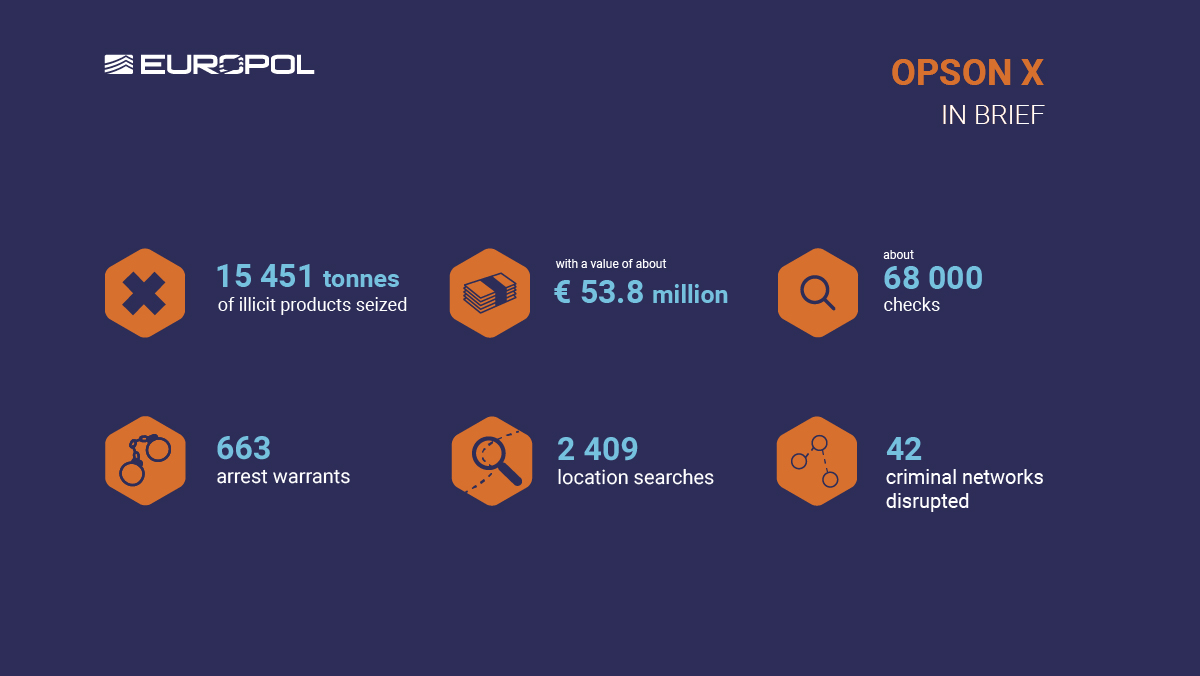A law enforcement operation jointly coordinated by INTERPOL and Europol has highlighted the vast quantities of illicit food and beverage products circulating throughout the global economy.
Codenamed OPSON X, the operation mobilized police, customs, national food regulatory authorities and private sector partners to undertake coordinated enforcement actions between December 2020 and June 2021 against illicit food and drink posing serious health risks to consumers.
Operation OPSON X saw law enforcement globally net 15,451 tonnes of illegal products, with an estimated street value of EUR 53.8 million. Nearly 68,000 checks were carried out by the 72 participating countries, resulting in more than 1,000 criminal cases being opened.
The enforcement actions have uncovered a wealth of new leads for food crime investigations. More than 600 arrest warrants were issued during the course of the operation, which is estimated to have disrupted the activities of 42 organized crime groups around the world.
The most seized goods in Operation OPSON X were alcohol and food supplements, followed by cereals and grain products. Alcoholic drinks were the most commonly counterfeited according to seizure results, as well as products protected by trademarks, geographic indications or appellations of origin.
Though not directly targeted in the operation, enforcement actions also turned up other illicit items, including fake test kits for COVID-19, HIV and malaria, cigarettes, weapons and ammunition, bush meat and other products of wildlife crime.
In Russia, police discovered a case containing more than 12,000 copies of pirated computer software, valued at around EUR 100,000. Meanwhile, Namibian authorities detected 24 irregular migrants during their actions carried out under OPSON X.
The most common types of food fraud include:
- mislabeling (42 percent)
- replacements/dilutions/additions/removals in product (20 percent)
- unapproved treatment and/or process (16 percent)
- document failings that are either falsified or manipulated (15 percent).
Further information on OPSON X.
